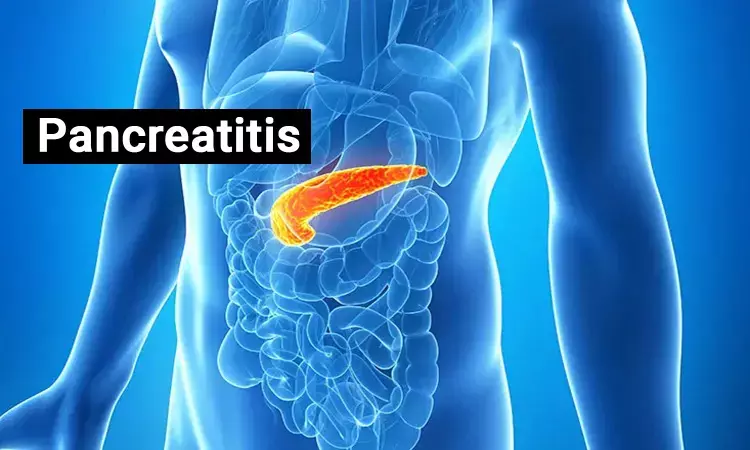- Home
- Medical news & Guidelines
- Anesthesiology
- Cardiology and CTVS
- Critical Care
- Dentistry
- Dermatology
- Diabetes and Endocrinology
- ENT
- Gastroenterology
- Medicine
- Nephrology
- Neurology
- Obstretics-Gynaecology
- Oncology
- Ophthalmology
- Orthopaedics
- Pediatrics-Neonatology
- Psychiatry
- Pulmonology
- Radiology
- Surgery
- Urology
- Laboratory Medicine
- Diet
- Nursing
- Paramedical
- Physiotherapy
- Health news
- Fact Check
- Bone Health Fact Check
- Brain Health Fact Check
- Cancer Related Fact Check
- Child Care Fact Check
- Dental and oral health fact check
- Diabetes and metabolic health fact check
- Diet and Nutrition Fact Check
- Eye and ENT Care Fact Check
- Fitness fact check
- Gut health fact check
- Heart health fact check
- Kidney health fact check
- Medical education fact check
- Men's health fact check
- Respiratory fact check
- Skin and hair care fact check
- Vaccine and Immunization fact check
- Women's health fact check
- AYUSH
- State News
- Andaman and Nicobar Islands
- Andhra Pradesh
- Arunachal Pradesh
- Assam
- Bihar
- Chandigarh
- Chattisgarh
- Dadra and Nagar Haveli
- Daman and Diu
- Delhi
- Goa
- Gujarat
- Haryana
- Himachal Pradesh
- Jammu & Kashmir
- Jharkhand
- Karnataka
- Kerala
- Ladakh
- Lakshadweep
- Madhya Pradesh
- Maharashtra
- Manipur
- Meghalaya
- Mizoram
- Nagaland
- Odisha
- Puducherry
- Punjab
- Rajasthan
- Sikkim
- Tamil Nadu
- Telangana
- Tripura
- Uttar Pradesh
- Uttrakhand
- West Bengal
- Medical Education
- Industry
Methimazole use may increase acute pancreatitis risk, finds study

Novara, Italy: The use of methimazole (MMI) increases the risk of acute pancreatitis (AP), the increased risk is limited to the first months of MMI treatment with the absolute risk being quite low, suggests a recent study. The results, published in the Journal of Clinical Endocrinology & Metabolism, supports the recent warnings by the European Medicine Agency (EMA). MMI is a medication used for the treatment of hyperthyroidism.
Alessandro Pecere, Università del Piemonte Orientale, Novara, Italy, and colleagues investigated the association between MMI and the diagnosis of AP in a population-based study.
The researchers conducted a retrospective analysis of administrative health databases from 2013 to 2018. Relevant data were obtained from -- drug claims registry, hospital discharge records, and inhabitants registry. AP risk in MMI users were evaluated in 18 months of treatment. The absolute risk of AP in MMI users was also calculated. A total of 23,087 new users of MMI were identified.
Key findings of the study include:
- 61 hospitalizations occurred during the study period.
- An increase in AP risk was evident during the first three trimesters of therapy (RR 3.40]; RR 2.40; RR 2.80), but disappeared thereafter.
- The AP absolute risk in MMI users during the first 18 months of treatment were less than 0.4% in all sex- and age-classes.
"Our findings support warning from EMA, suggesting an increased AP risk associated with MMI use. However, such an increase seems limited to the first months of MMI treatment. Moreover, in absolute terms, the probability of AP is low among patients, well below 1%," included the authors.
The study, "Methimazole treatment and risk of acute pancreatitis: a population-based cohort study," is published in the Journal of Clinical Endocrinology & Metabolism.
Dr Kamal Kant Kohli-MBBS, DTCD- a chest specialist with more than 30 years of practice and a flair for writing clinical articles, Dr Kamal Kant Kohli joined Medical Dialogues as a Chief Editor of Medical News. Besides writing articles, as an editor, he proofreads and verifies all the medical content published on Medical Dialogues including those coming from journals, studies,medical conferences,guidelines etc. Email: drkohli@medicaldialogues.in. Contact no. 011-43720751


